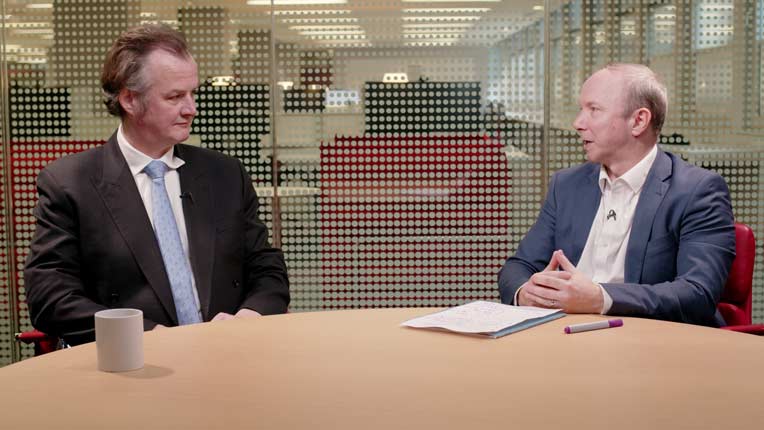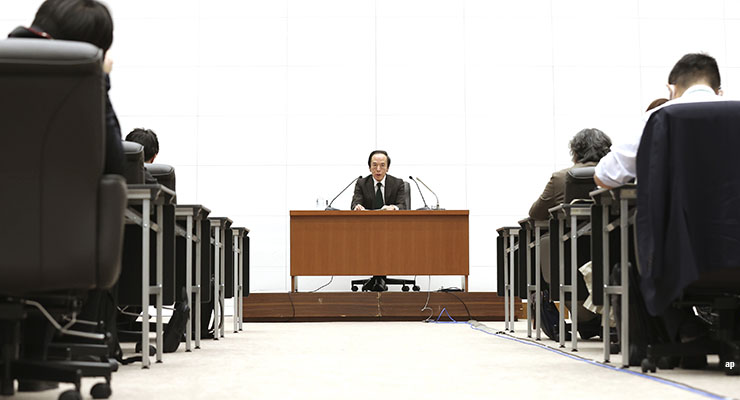Such demand helped the Nikkei up to 11,537 on March 5th although it ended at 11,271 today. It started the year at 10,787.
However, returns to foreign investors are complicated by uncertainty over the Japanese currency. The Japanese authorities have spent huge sums in an attempt to stop the yen appreciating rapidly against the dollar. Alan Greenspan, the chairman of America’s Federal Reserve, has even described the scale of Japanese currency intervention as “awesome”.
Si
nce August the yen has strengthened by over 10% against the dollar, hitting firm resistance at ¥105. After massive intervention in January and February the exchange rate has fallen back to about ¥111. But ¥100 is still considered a vital psychological threshold. If the dollar falls below ¥100 many fear a strong reaction in the stockmarket, which could once again hurt the balance sheets of Japan’s shaky banking sector.
Sustainable question
Strong economic growth was an important factor behind rising share prices. GDP grew at an annual rate of 6.4% in the final quarter of 2003 – and was initially estimated at 7.0%.
A key question now is whether such strong growth can be sustained, which in turn is likely to depend on whether private consumption in Japan follows exports upwards.
So far Japanese economic growth has been export-led with export-oriented firms reporting strong profits growth. According to Andy Xie, the head of the Asia Pacific economics team at Morgan Stanley, China accounts for the entire $25 billion (£14 billion) of export growth since 2000.
China and Japan are developing a strong complementary relationship. China has a surplus of cheap labour while Japan has a surplus of capital equipment. In addition, Japanese companies have invested heavily in China. As a result investing in Japan provides an indirect way for investors to benefit from Chinese growth.
Low interest rates – at least in nominal terms – have helped to support investment and consumption. The latest statistics show that both consumer and business confidence have improved thanks to economic growth and lower unemployment.
Deflationary pressure
However, according to Andrew Smithers, a leading City economist, more than one year of high economic growth is necessary for Japan to truly recover. Deflationary pressure will continue as long as there is spare capacity in the economy. Only by lowering investment substantially can capacity utilisation and profitability increase. Add to this a budget deficit of about 7% of GDP and the imbalances in the Japanese economy appear hard to solve.
Long term problems remain including a rapidly ageing population and dependence on goods exports that are being undercut by other Asian countries. Economic reform is therefore still needed, for example in the financial sector, the labour market and protected domestic sectors. Improved economic conditions have given the reformers who won last year’s elections more freedom to act but it but it remains to be seen how many of their promises will be kept.

























